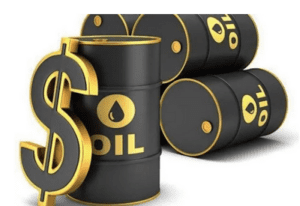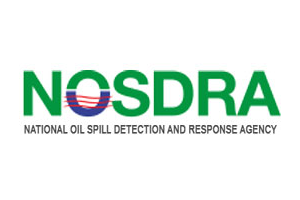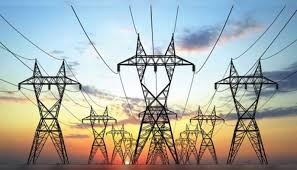
NNPC Ltd signs new PSC agreement, launches crude oil theft reporting app
…To save Nigeria about $9bn potential contingent liability
By Gloria Akudoro, Abuja
As the dividends of PIA continue to linger, the Nigerian National Petroleum Company Limited (NNPCL) on Friday amicably renewed the signing of the fully termed agreement for the negotiated Production Sharing Contract (PSC) Agreement with five oil partners in order to shrug off uncertain and attract more investment in the sector.
Signing the PSC Agreement with several oil majors which took place at the NNPC Tower in Abuja, the Group Chief Executive Officer, NNPC Limited, Mallam Mele Kyari, maintained that the deal will aid save Nigeria and the Company about $9bn contingents liability.
At the signing ceremony, the NNPC Limited and its Production Sharing Contractors renewed agreement in five (5) Oil Mining Lease (OML): OML 128 situated at the central part of the Niger Delta, contained in Agbami-Ekoli field; OML 130 situated in the deepwater Niger Delta, contained the Akpo and Egina field; OML 132 is situated at the Western Niger Delta, contained Apart field; OML 133 contained the Erha, Erha North and BosI field and deepwater OML138 contained Usan field. A development expected to unlock over $500bn in revenue for the country.
Kyari who described the deal to be a major landmark achievement since it transited to a limited liability company under the Company and Allied Matters Act (CAMA) hinted that the execution of fully termed agreements for the renegotiated PSCs will ultimately accelerate inflow of direct foreign investment, expanded access to affordable energy, job creation and socio-economic development.
“The signing of the new PSCs is a key milestone achievement by NNPC Ltd which would ultimately unlock opportunities within the Nigeria Upstream sector.
“The execution of the PSCs will deepen investment and development of Nigeria’s rich petroleum resources and ensure that the trifold mandate of the NNPC Ltd to ensure energy availability, sustainability, and accessibility is achieved,” said NNPC GCEO.
Although, he attributed the conflicts to the 1993 PSC Agreement which over the years yielded major issues that led to arbitrations and all forms of litigations thereby destroying it relationship with partners and causing set-back to the nation.
It will be recalled that in Nigeria the Production Sharing Contracts commenced with the 1993 PSCs, subsequently followed by 2000, 2004, 2005, 2007, 2010 to date. The PSC in Nigeria was mainly motivated by funding challenges faced by the joint venture arrangements that led to reduction in production and revenue.
Kyari further stressed that the execution of PSC Agreement today wouldn’t have been a reality without the leadership role of Muhammad Buhari’s administration that agreed to smoothly resolve amicably this conflicts that has lingered in a manner it becomes a win-win situation through the provision contained in Petroleum Industry Act (PIA).
He said the PIA in Section 311(2) stipulates that new PSC agreements under new Heads of Terms will be signed between NNPC Ltd as Concessionaire and her Contractor Parties within one year of signing the PIA into law, giving a deadline of 15th August 2022.
“This provision paved the way for the resolution of lingering disputes which created investment uncertainty and stifled new investments in the nation’s deep offshore assets. To achieve this, NNPC Ltd leveraged on the near end term of the PSCs and the parties’ interest to renew the PSCs as a negotiation currency in bringing the contractors to work towards trading the past for the future.
He also said that the renewed PSCs would impact greatly in improving long-term relationships with contractors, elimination of contractual ambiguities especially in relation to gas terms, enable early contract renewal amongst others to move the nation forward.
Speaking, the GGM, National Petroleum Investment Management Services (NAPIMS), Bala Wunti, stated since the introduction of PSC into Nigeria’s hydrocarbon production algorithm, over 5.9billion barrel of oil equivalent has so far been produced and monetized by the various PSCs arrangements.
He added that in the last two decades, the PSCs have commutatively accounted for about 40% of Nigeria’s oil production.
Wunti, disclosed that NAPIMS as the Asset Manager of all the producing PSCs in Nigeria, has played pivotal roles in the renegotiation of major PSCs assets under our supervision including OMLs 119, 125, 128, 130 ,132, 133 and OML 138 under the leadership of the NNPC GCEO and GED Downstream.
NAPIMS GGM also noted anticipation of this history signing of the PSC NAPIMS had been actively working in collaboration with PSC Contractors to emplace essential Final Investment Decision parameters for major Deepwater projects including Chevron operated AGBAMI Gas Projects, OWOWO and BOSI development by ExxonMobil, SNEPCO’s BONGA North and BONGA Southwest Aparo, BOLIA-CHOTA, the PREOWEI Project being operated by TotalEnergies.
Also speaking at the event, the Chairman/Managing Director of ExxonMobil Companies in Nigeria, Mr. Richard Laing noted that the renewal of the Usan and Erha leases validates the company’s commitment to maintain a significant deepwater presence in Nigeria, via Esso Exploration and Production Nigeria (Deepwater) Limited.
“This signing enables ExxonMobil and its partners to unlock the potential value in these leases and to bring forward additional investment,” Mr. Laing stated.
Meanwhile, the NNPC Board Chairman, Senator Margery Chuba-Okadigbo, has thanked the captains of industry and all who jointly worked towards the successful execution of the PSC Agreement.
The Executive Chairman, Federal Inland Revenue Services, Muhammad Namu, said it’s the duty of the service to bare witness to agreement and to ensure that transparency leads.
Another milestone achieved by the NNPC Limited under the administration of Mr President is the launching of Nigerian Crude Oil Theft Incidence Reporting App which is already in the cloud to monitor activities of oil theft in the Niger Delta.
The Company also released a website link and contact hotlines to enable direct reporting of any oil theft activity and individual with valid information will be rewarded handsomely.



